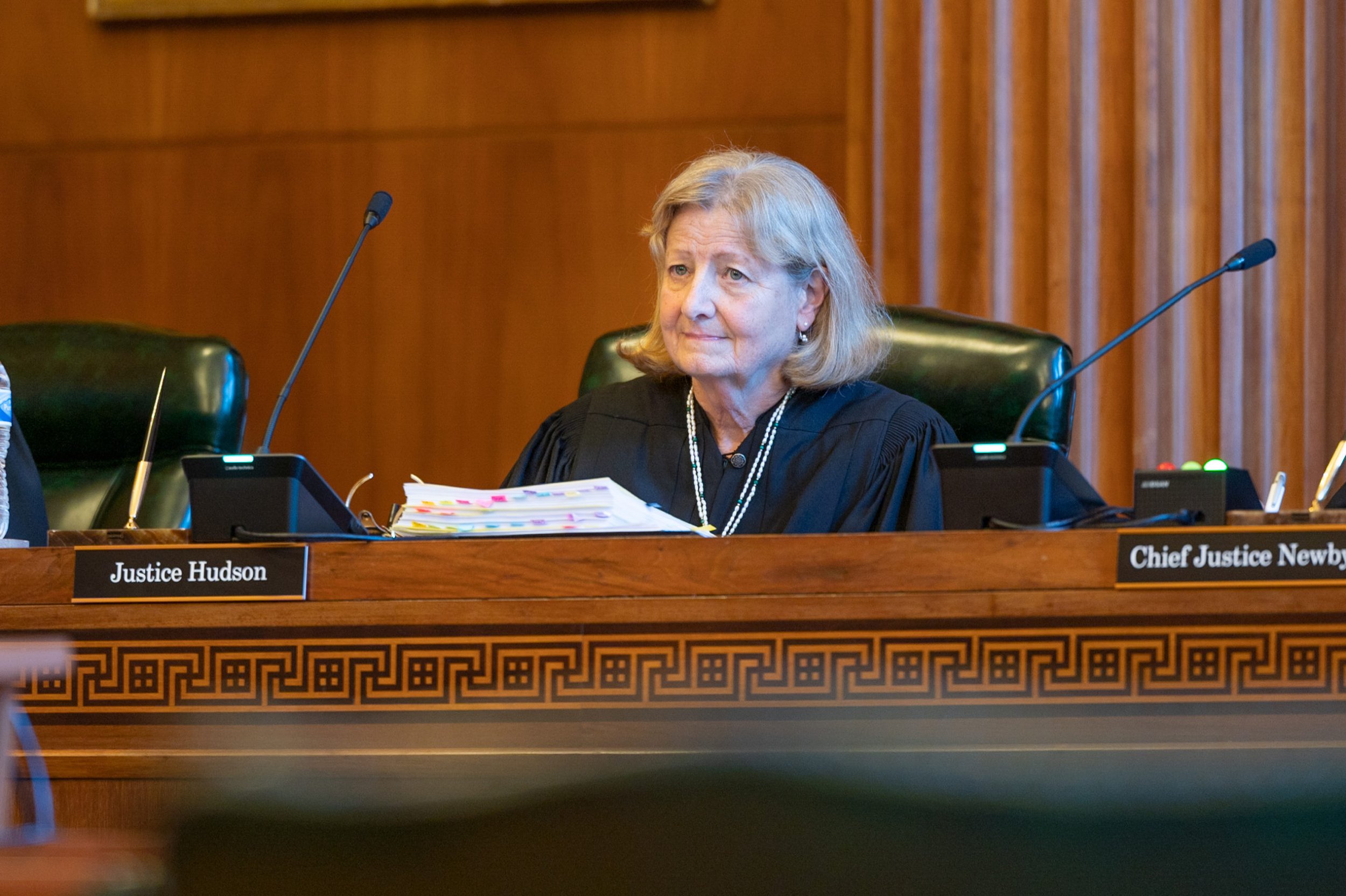State Supreme Court spells out details of redistricting ruling
By Mitch Kokai, Carolina Journal
Ten days after throwing out North Carolina's newly drawn congressional and legislative election maps, the state Supreme Court has produced its formal opinion in the case.
"Today, we answer this question: does our state constitution recognize that the people of this state have the power to choose those who govern us, by giving each of us an equally powerful voice through our vote?" asked Justice Robin Hudson, at the opening of her 138-page majority opinion.
"Or does our constitution give to members of the General Assembly, as they argue here, unlimited power to draw electoral maps that keep themselves and our members of Congress in office as long as they want, regardless of the will of the people, by making some votes more powerful than others? We hold that our constitution’s Declaration of Rights guarantees the equal power of each person’s voice in our government through voting in elections that matter."
Hudson, the senior associate justice, wrote for the Supreme Court's four Democrats. They outvoted Republican colleagues, 4-3, agreeing to throw out maps drawn by a GOP-led General Assembly.
"[W]e hold that claims of partisan gerrymandering are justiciable under the North Carolina Constitution," Hudson wrote. "Although the primary responsibility for redistricting is constitutionally delegated to the General Assembly, this is not a delegation of unlimited power; the exercise of this power is subject to restrictions imposed by other constitutional provisions, including the Declaration of Rights. ... [C]laims of partisan gerrymandering can be carefully discerned and governed by manageable judicial standards."
"[W]e hold that the General Assembly infringes upon voters’ fundamental rights when, on the basis of partisan affiliation, it deprives a voter of his or her right to substantially equal voting power, as established by the free elections clause and the equal protection clause in our Declaration of Rights," Hudson added. "We hold it also constitutes viewpoint discrimination and retaliation based on protected political activity in violation of the free speech clause and the freedom of assembly clause in our Declaration of Rights."
The Democratic justices' findings lead to a conclusion. "[W]e hold that the General Assembly’s 2021 enacted plans are partisan gerrymanders that on the basis of partisan affiliation substantially infringe upon plaintiffs’ fundamental right to equal voting power."
Democratic Justice Michael Morgan, joined by colleague Anita Earls, added a two-page concurrence focusing on the N.C. Constitution's Free Elections Clause. Article I, Section 10 of the constitution says "All elections shall be free."
"In my view, a free election is uninhibited and unconstrained in its ability to have the prevailing candidate to be chosen in a legislative contest without the stain of the outcome’s predetermination," Morgan wrote. "Commensurate with the General Assembly’s constitutional authority to draw legislative maps is one’s constitutional right to participate in legislative elections which shall be free of actions — such as the General Assembly’s creation of the legislative redistricting maps here — which are tantamount to the predetermination of elections and, hence, constitute constitutional abridgement."
Chief Justice Paul Newby, writing for the court's three Republicans, explained their dissent from the Democratic majority.
"With this decision, unguided by the constitutional text, four members of this Court become policymakers," Newby wrote. "They wade into the political waters by mandating their approach to redistricting. They change the time-honored meaning of various portions of our constitution by inserting their interpretation to reach their desired outcome."
"They justify this activism because their understanding of certain constitutional provisions has 'evolved over time,'” he added. "They lament that the people have not placed a provision in our constitution for a 'citizen referendum' and use the absence of such a provision to justify their judicial activism to amend our constitution. The majority says courts must protect constitutional rights. This is true. Courts are not, however, to judicially amend the constitution to create those rights."
"In its analysis, the majority misstates the history, the case law of this Court, and the meaning of various portions of our Declaration of Rights," Newby wrote. "In its remedy the majority replaces established principles with ambiguity, basically saying that judges alone know which redistricting plan will be constitutional and accepted by this Court based on analysis by political scientists. This approach ensures that the majority now has and indefinitely retains the redistricting authority, thereby enforcing its policy preferences."
"Generally, the majority takes a sweeping brush and enacts its own policy
preferences of achieving statewide proportionality as determined by political scientists and approved by judges," the chief justice wrote. "While mentioning traditional, neutral redistricting criteria, its primary focus is instead on the final partisanship analysis to achieve statewide parity."
The 217 pages of contrasting legal arguments arrive as the General Assembly works to adopt new election maps by Friday. The Supreme Court set that day as the deadline for submission of new maps to a three-judge panel overseeing the redistricting case.
That court must decide by Feb. 23 whether the legislative maps comply with the Supreme Court's ruling against partisan gerrymandering.



